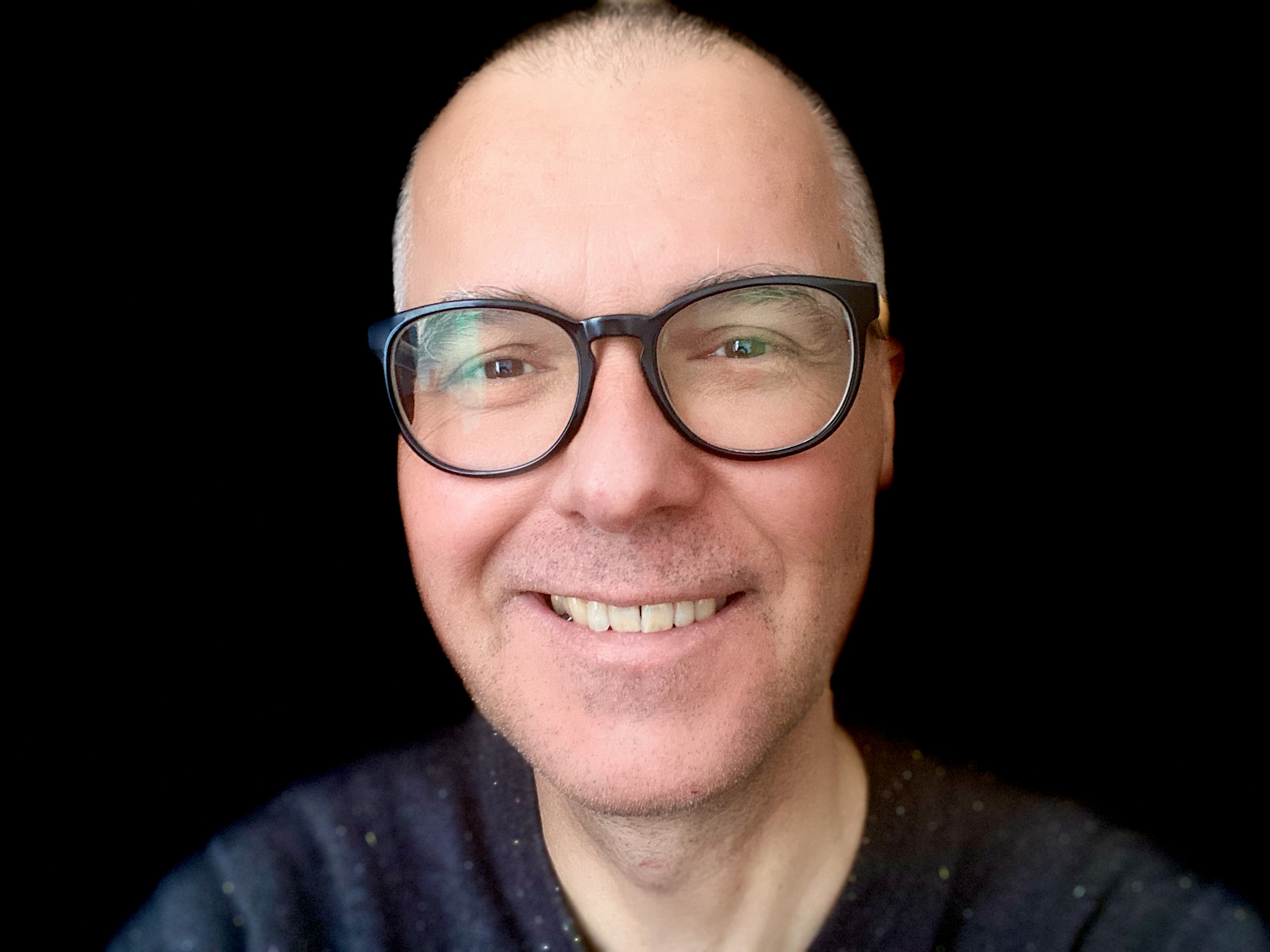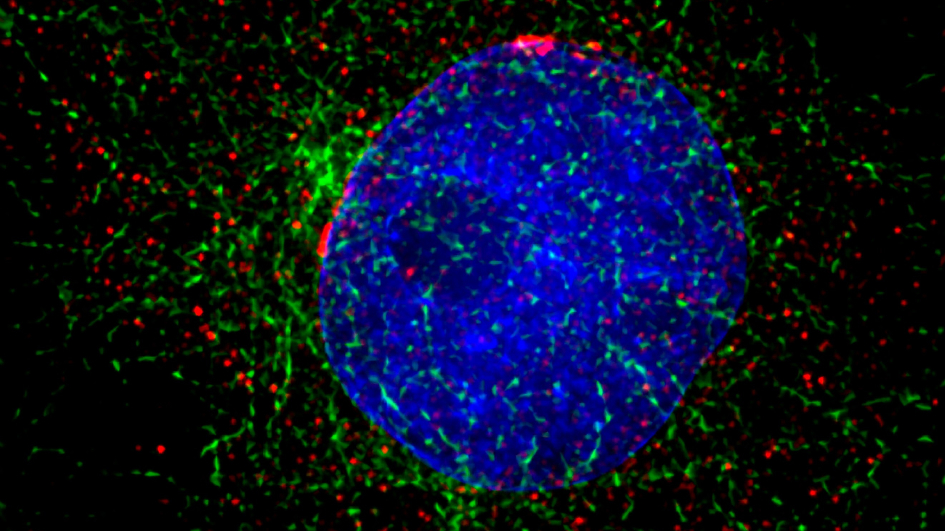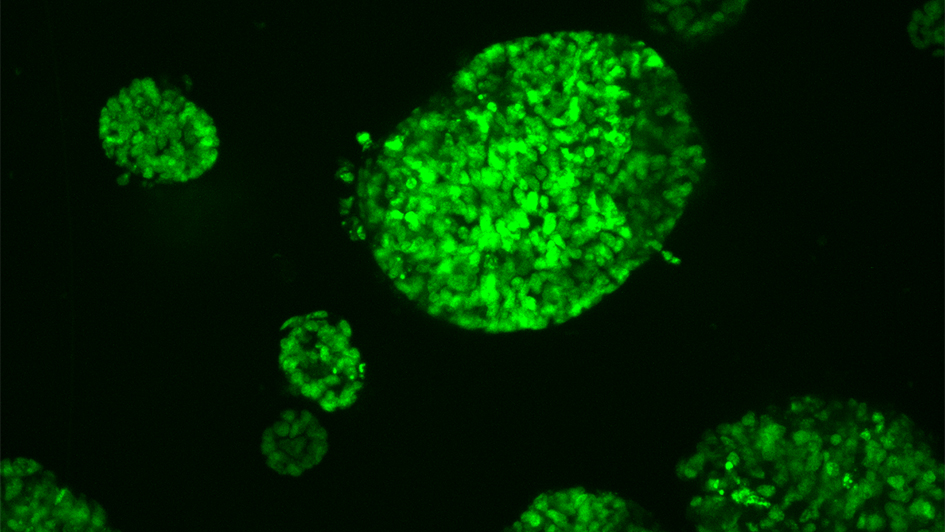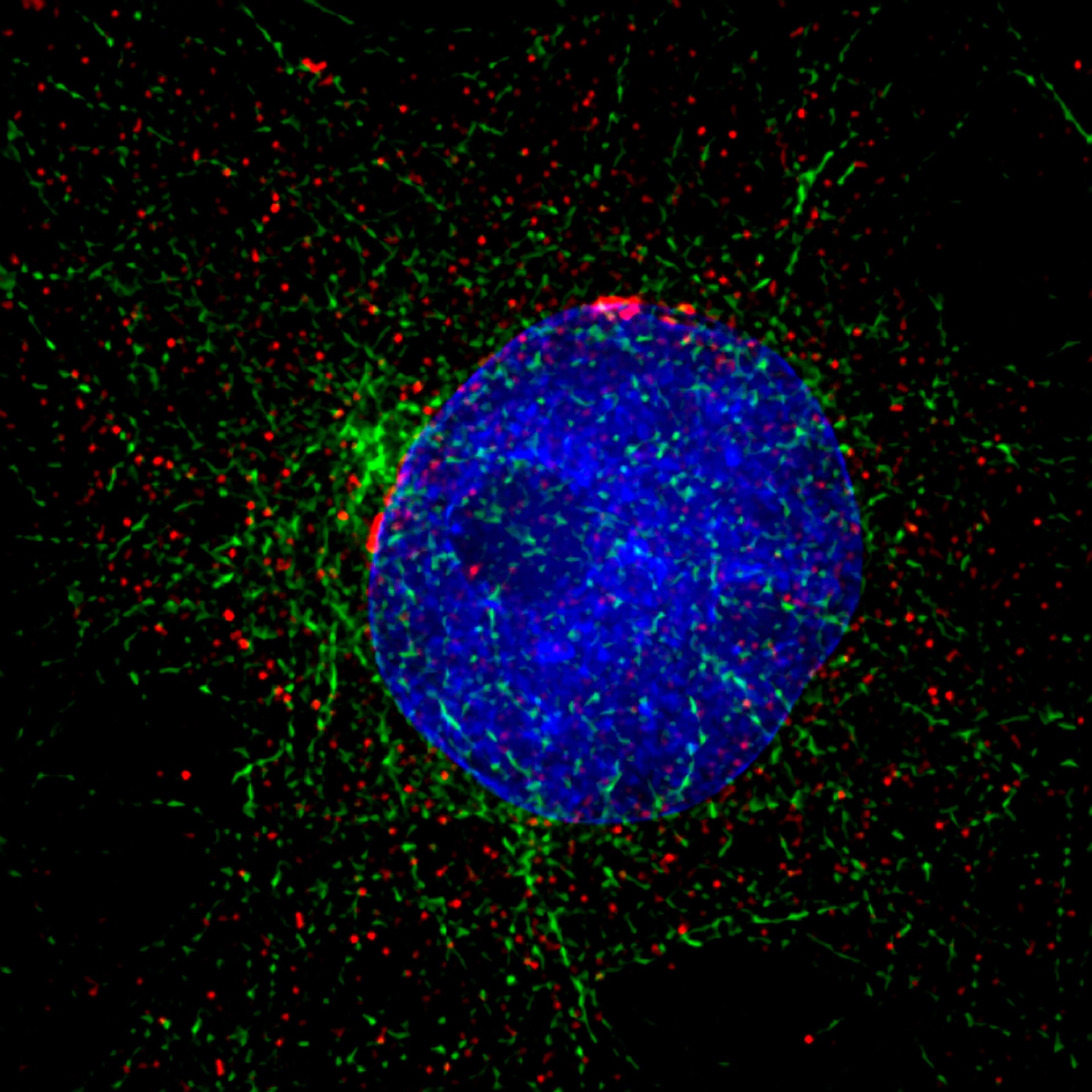Our research into kidney cancer
Our scientists conduct world-class clinical and translational research to benefit patients with kidney cancer, also known as renal cancer.
Our kidney cancer research has uncovered underlying causes of the disease, and has led to the development of new and better treatments and technologies that could treat it.
Image: Xenopus cancer kidney cells, image credit: Paul Andrews
Our progress against kidney cancer
Genetic risk
An ICR group including Professor Richard Houlston recently found seven new genetic variants that are linked to an increased chance of developing renal cell carcinoma. Their analysis provided evidence that a person’s susceptibility to this cancer type is linked to the combined effect of multiple genetic mutations.
Ultrasound
The ICR has pioneered a technology that uses ultrasound to destroy tumours without the need for surgery. The technique uses highly targeted sound waves to heat and destroy cells inside the body and is known as high-intensity focused ultrasound (HIFU).
Currently, Professor Gail ter Haar’s and the Therapeutic Ultrasound Group are undertaking research to improve our understanding of how high intensity focused ultrasound (HIFU) could rapidly heat and kill liver and kidney tumours.
Clinical research
Researchers at the ICR also work closely with colleagues at our partner hospital, The Royal Marsden, in clinical studies that could lead to new treatments for people with kidney cancers.
For example, the ICR’s Cancer Research UK Clinical Trials and Statistics Unit is currently co-leading a trial called A-PREDICT, in collaboration with The Royal Marsden’s Professor James Larkin, to establish if people with advanced kidney cancer who cannot have surgery could benefit from treatment with the targeted cancer drug axitinib.
And the TRANSORCE study – a sub-study of the SORCE kidney cancer trial – is exploring the mechanism of action of the drug sorafenib in kidney cancer and could improve the selection of patients who are most likely to benefit from it.

My diagnosis was completely unexpected – after becoming ill one day in 2017, I was rushed to hospital, and it was discovered I had kidney cancer which had spread to my brain.
I had surgery to remove my kidney and reduce the secondary tumour in my brain, and then started taking targeted medications which I’ve been on ever since. My latest scans showed a 64% reduction in size of the remaining tumour in my brain, and I’m feeling very hopeful for the future.
— Neil Fairbrother
Your support helps
Please donate today to help more people survive kidney cancer. As a UK charity, our life-saving research relies on the generosity of individuals and organisations. Our supporters help us make a difference to the lives of cancer patients and their families everywhere.
Kidney cancer discoveries

International trial shows combination immunotherapy treatment significantly improves survival in high-risk kidney cancer patients

